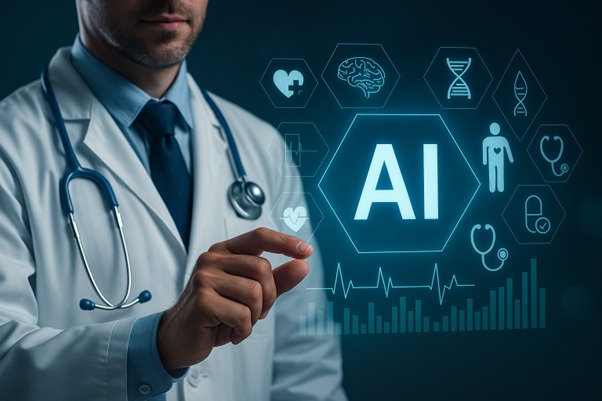
AI in Healthcare Isn’t Coming — It’s Already Here
Artificial Intelligence isn’t a promise of the future — it’s already changing the way healthcare is delivered, diagnosed, and experienced. From faster cancer detection to precision-driven diagnostics, AI has quietly entered hospitals, clinics, and even rural health centres. This isn’t a tech revolution waiting to happen — it’s one that’s already underway.
AI in Medicine: From Assistants to Essential Tools
The idea of AI in medicine has moved beyond experimental pilot projects. Today, AI systems are being used to interpret medical scans, analyse blood reports, flag early signs of chronic illness, and even recommend treatment protocols — all within seconds.
Doctors aren’t being replaced. They’re being enhanced.
- Radiologists use AI to catch anomalies missed by the human eye
- Primary physicians rely on AI tools to triage patient symptoms faster
- Mental health platforms use AI-driven chatbots for initial screenings
AI in medicine is now foundational, not futuristic.
AI Cancer Detection: Every Second Matters
One of the most impactful examples of AI’s real-world application is in cancer detection.
- AI can analyse mammograms, CT scans, and pathology slides at unmatched speeds.
- In studies, AI has demonstrated comparable or higher accuracy than human doctors in identifying breast, lung, and skin cancers.
- India-based platforms now use AI to screen for oral cancer in rural populations using just smartphone cameras.
By catching cancers earlier and faster, AI cancer detection is not just about efficiency — it’s about giving patients a head starts in the race for survival.
Healthcare AI Tools: Quietly Powering the System
Beyond the operating room, healthcare AI tools are transforming how hospitals run and how patients engage with the system.
- AI automates hospital paperwork, appointment systems, and discharge planning
- Voice-based assistants help doctors document patient notes hands-free
- AI is accelerating drug discovery and personalizing treatment pathways
What once took days of analysis can now be done in minutes — freeing up time for what matters: the human touch in medicine.
AI Diagnosis Accuracy: Are Machines Getting It Right?
One question still lingers: can we trust AI with diagnosis?
In most cases, yes — and sometimes even more than humans. Studies from 2023–2025 have shown:
- 94% accuracy in detecting diabetic eye disease
- 92% accuracy in diagnosing pneumonia from chest X-rays
- Up to 97% accuracy in skin lesion classification
Of course, machines can make mistakes — especially when trained on incomplete or biased data. That’s why the future isn’t about AI replacing doctors. It’s about AI working with them.
Real Healthcare, Real Results
Across India and globally, AI is already delivering impact:
- Helping rural clinics screen patients without specialists
- Reducing human error in diagnostics
- Making life-saving interventions faster, cheaper, and more accessible
What was once limited to high-end research labs is now in primary health centres. That’s not the future — that’s now.
Final Word: The Future’s Already at the Door
AI in healthcare isn’t an innovation waiting for validation. It’s already diagnosing, detecting, guiding, and learning — right alongside doctors.
We’re not preparing for an AI-powered healthcare future.
We’re living in it.
The only question now is: how ready are we to build systems that use it wisely, ethically, and for everyone’s benefit?

